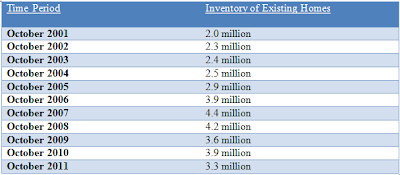Making an of Offer on a House Without a Buyer's Agent.
Thinking about making an offer on a house without a real estate agent? Nervous about negotiating the best house price in this crazy economy? We don't blame you. When it comes to buying a home, negotiation can mean the difference between a few thousand dollars and tens of thousands of dollars. It's stressful and scary, especially if you're doing it without an experienced real estate agent. Negotiating a home selling contract in this current real estate market is also financially tricky. This is where an experienced agent who has sold in times of real estate booms and past real estate slumps can save you more than the commission you pay them.
For those brave enough to consider making an offer without a buyer's agent, here are a few tips on negotiating house price:
Negotiating House Price Tip #1: Arm Yourself with Information
The most important information is a Comparable Market Analysis (CMA), which is a neighborhood survey of the similar and recently sold homes in your neighborhood of choice. There are several places you can get partial information about sold houses online these days, but it is important to choose the right homes and get full information. This is another way a professional real estate agent can help you save money. Agents have access to the most up-to-date real estate data and are experts at figuring out which houses truly belong in a CMA. More importantly for today's economy, a real estate agent can tell you how short sales and foreclosures in the neighborhood can affect negotiating an offer. House pricing is very tricky in this economy.
Once you have access to a detailed CMA, check out the houses as much as possible. A real estate agent might be able to get inside some of the houses that were just recently sold or have a current offer. You can check to see if the house you're looking at is up to par or if it falls frighteningly below the homes listed in the CMA. This is a great way to tell if your house is near the proper price point or if there is leeway in negotiating an offer. House pricing is much more complicated these days than it used to be. Rather than comparing features like which houses have pools and which don't, buyers are weighing short sales against foreclosures and traditional home sales.
Negotiating House Price Tip #2: Figure Out the Seller's Motivation
Information is key in negotiating house price. But, finding out how your dream house price compares to the market is only part of the process. The second is figuring out the seller's motivation. It's the fun part of play detective and look inside the home seller's mind for a minute. Do they have to sell their house or do they want to sell? Motivation isn't always revealed and the seller's agent doesn't necessarily have to give you this information. However, if you have a good real estate agent, he or she often can get the information from the seller's agent.
Have too reasons:
- They are relocating for a job.
- They just got laid off and can't afford the mortgage.
- The house is close to foreclosure and they don't want to ruin their credit history.
- They just had an addition to their family and truly don't have enough space.
- They are testing the market to see if they could sell their house.
- They want to buy a different house while housing prices are down.
- They want to buy a new house while mortgage rates are low.
Negotiating House Price Tip #3: Don't Waste Time
Buying a home can be super stressful. You don't have time to waste with sellers who won't budge and you shouldn't waste the seller's time with a low-ball offer.
How do you know if sellers are wasting your time? If they won't discuss asking price in relation to similar homes in the neighborhood, they probably are not serious about selling the home. Sellers will do this when they're unsure about moving or to figure out how much they can get for their property.
Just as they shouldn't waste your time, don't waste theirs. Don't give them a low-ball offer just to see if they bite. It makes you seem like you're not ready to buy or that you want to scam them. If you are truly interested in the house, this is not a good negotiating tactic.
Negotiation is an art, not an exact science. Experienced real estate agents have practiced different techniques and know what works when negotiating house price and what doesn't. Once again, in today's economy, negotiating house price can be much easier if you have an experienced agent on your side. Negotiating a home selling contract is a tricky proposition if done on your own.
